Matt Wilkinson: Beats 1, Osheaga, and making the music makers
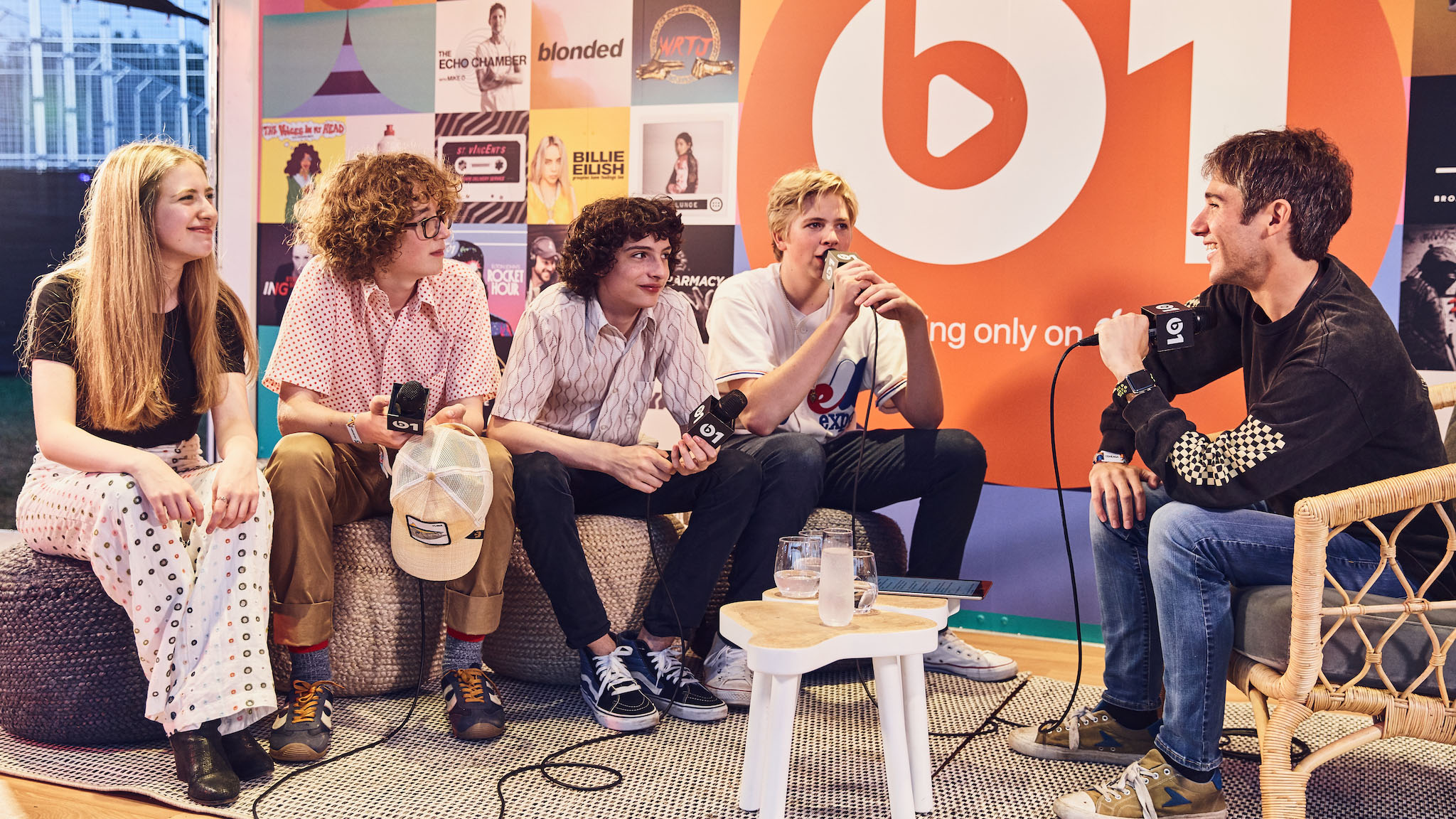
When you think of Apple Music and Beats 1, you tend to think of streaming, worldwide, always on, any song you want, any time you want it. What you don't tend to think about — or at least I didn't until I started asking around — is how all that music gets discovered all around the world.
So, when Beats 1 came to my hometown for the Osheaga Music Festival in Montreal, and host Matt Wilkinson came with it, I jumped at the chance to jump on the line and chat with him about how he got started, what Beats 1 is doing for new and local artists, why they're at the festival, and more.
Drop the needle...
On the Air
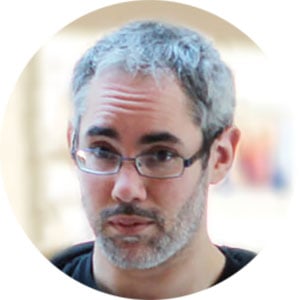
Rene: Matt, if people aren't familiar with you, could you give us just a sense of maybe how you got into music personally and professionally and how you got to Beats 1?

Matt: Sure. I come from a place called Cornwall, in the UK, which is right at the tip. For anybody who doesn't know, it's about six hours away from London. Not really near any major city. It's very rural.
I just became obsessed with music when I was a teenager. British music was kind of coming out of the Blur, Oasis, Pulp-type thing. Radiohead as well. They were the big bands at the time. I got the tail end of that.
As I say, I was obsessive. Started playing the guitar and the drums as a kid. Starting trying to go to as many gigs as possible, though not many people played in Cornwall. I've never lost that obsession.
iMore offers spot-on advice and guidance from our team of experts, with decades of Apple device experience to lean on. Learn more with iMore!
At some point I decided, after reading UK music press and watching MTV and listening to the radio, I was like, "Yes. Music is the thing for me. I want to try and work my way into that somehow."
Went to university up-country and studied journalism with the aim of getting into music. Off the back of that, I started writing for little magazines, just for free really.
One of those magazines, it's called "Stranger." I have to shout out my editor there. It was a girl called Helen. She really put a lot of trust in me. I was just a kid at the time. I had no experience.
She let me interview Amy Winehouse. This was at a time when Winehouse was big.
She'd already won BRIT Awards. She was Grammy nominated, I think, at that point. It was just before she had major tabloid troubles. She was still in a really strong position.
I did this interview with her and I was pretty nervy. She was certainly the most famous, important, and biggest person I'd ever met at that point, and I was just a young kid. The interview went really well. We got on well, and the piece was great.
That eventually led me to NME Magazine. I sent it to them, and they were like, "Yeah, come up and see us and write some stuff for us." I stayed with them for about eight years, in total.
During that time, moved up to London, got really obsessed with new music. I was going out to all these clubs and shows where the band hadn't been signed yet or was just on the cusp of getting signed.
I kind of became addicted to that side of music and I never left that. Through that period of just going to those little gigs, I actually met Zane Lowe, who at that stage was at Radio One. We just swapped email addresses, actually.
I used to send him music, and he would play it on his show on Radio One, shout me out and say, "This is Wilko from NME."

Rene: Nice.

Matt: "Thanks for the tip, man," which was just surreal to hear. It gave me a thrill when he did that.
Eventually, when he left and went over to Apple, he sent me a couple of emails to say, "Hey, do you fancy meeting for a coffee before I go to LA?"
That was where the ball started rolling for this, because I'd never done radio before. I guess he took a gamble on his part in saying, "I'm gonna give you show, just 'cause I like your style and music taste, and I like, you know, what you have to say about music."
Lo and behold, it worked. I'm still here now three years later.

Rene: Yeah, he won on that gamble, big time.

Matt: I know, because we were lucky.
[laughter]
Worldwide. Always On.
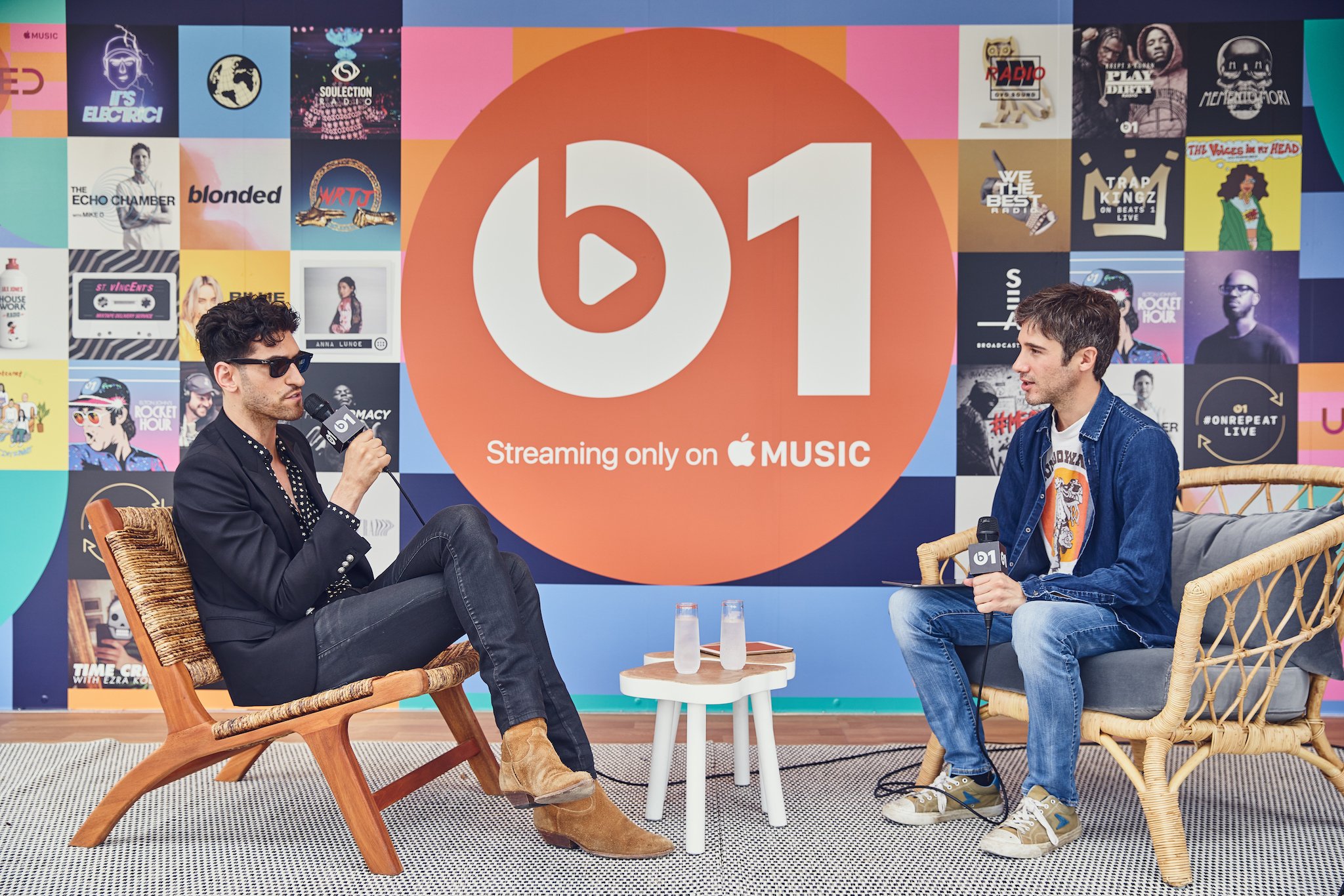

Rene: Apple famously is designed in California, but from the launch of Beats 1, it was just so international. Was that part of the appeal to you?

Matt: Yeah, 100 percent. It's odd, in a way. You know what it's like when you live in one place. It's quite difficult to think outside of the bubble. The great thing about music, and I say this quite a lot, there are no borders with music, which is brilliant.
The fact that now anybody in the world, whether you are a 10-year-old kid in Australia or a 70-year-old woman in Africa, you can have access to 45 million songs from all over the world.
If you know how to really get the best out of the service -- I think people do know how to search for playlists that appeal to them and find new artists -- if you really are on top of things, you'll find a lot of new music from all over the world.
What I'm noticing is that those boundaries, if you will, they're not there anymore. I listen to music from all over the world now. I play it on a show.
Whereas maybe in the '90s, when people were more tribal, there might have been a bit of stigmatism towards a rock fan listening to French hip-hop, that just doesn't exist anymore. Like I say, I notice that the further that we get into this game, if you will, of what we're doing at Beats 1...
It was appealing for me at the start to be broadcasting in over a hundred countries at the same time, live. You could be listening at 1:00 AM in Mozambique. It would be 2:00 PM in Montreal. I love the idea of that.
People get in touch with me as well. When we're on air, I get tweets and Instagram messages and stuff from people from all corners of the world.
It's just incredible. It's so nice to wake up in the morning and find someone's written you a message overnight and said, "Hey, I love your show. I was listening from wherever."
Weirdly, quite a lot of people have found out we're here at Osheaga. There have been quite a lot of people from Montreal saying, "I hope you're enjoying our city," which is just such a lovely thing.
Going local
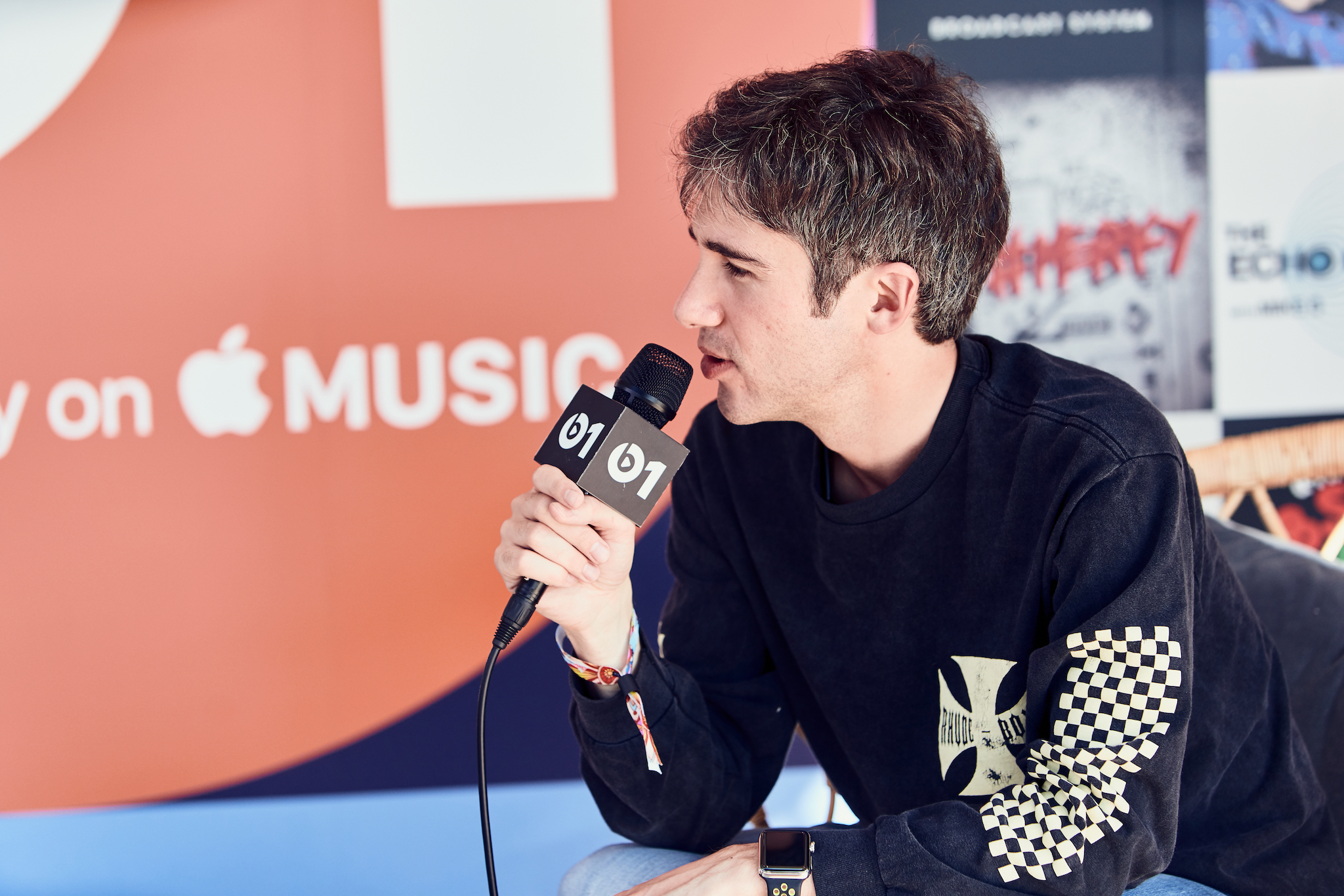

Rene: I think what people might not have realized at the beginning is you're not just taking music from all over the world, but Beats 1 and Apple Music is actively supporting artists nationally, locally even, around the world.

Matt: It's weird, the local thing is. You're right there. I never did that to this degree when I was at NME because the infrastructure wasn't there, but it is now. It's helped massively, I have to say, by the Apple Music teams around the world.
People ask me quite a lot, "How do you discover new music?" It's a few ways really. Like one is just me searching for stuff religiously, online or in record shops. Another one is industry people tipping me stuff.
Another one, since I've worked for Apple, is teams. We have teams in Montreal. I went and met a lot of the guys over this weekend. We have teams in every major outpost in the world, pretty much.
There's a lot of email communication that goes on between us. I'm actively someone who just...I naturally reach out to people and just send emails and say, "Hey, what's up? Have you heard anything good recently? What should I be listening to from your part of the world?" It really works.
Making music
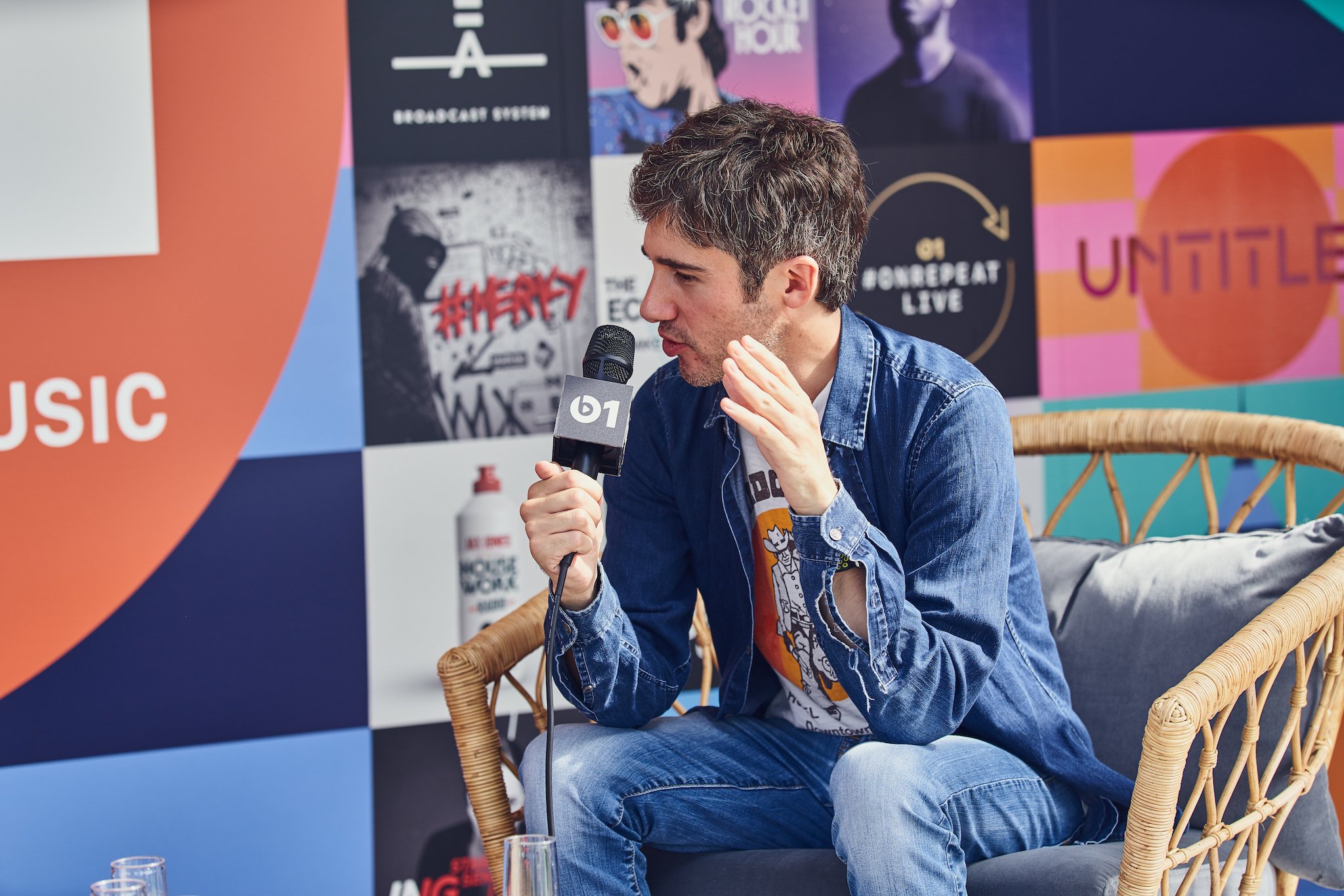

Rene: It's amazing because you're not just breaking new music. When you look at the amount of streams, you're helping create new acts, new artists. You're giving them a stage. You're helping them break through.

Matt: What we want is for artists to come to us right at the beginning really and not be scared by it. I talk to a lot of artists who, when they're taking their first steps in the music industry, they might not know the correct path to follow or what's best for them or which people to work with.
We're very, very keen, here at Beats 1 and Apple Music, at cultivating a very relaxed, friendly atmosphere. When I was at South by Southwest this year, for example, I met with a bunch of artists.
We didn't interview them. We just met them and pressed flesh and said, "Hey, how are you? I like the stuff that you've got online, the demos that you've got up on Apple Music or whatever they are, or your first EP. I'm interested in what you're doing."
It's just an excuse for me to get to know people. Kero was a great example of that. I think we met her at South by before we'd really done any proper interview. Now we have that connection where we can DM each other when a new song comes out or whatever.
There's a number of artists at that level. It's all about introducing them to Apple Music and showing them how we can help them to grow. That's the most basic thing we can do really, is just help musicians out there to grow and then play music that we like to people around the world.
Going live
https://twitter.com/Beats1/status/1026208713609076736

Rene: You mentioned South by Southwest. Now you're in Canada. You're in Montreal for Osheaga. How does the live venue, the live act, having Beats 1 in these locations, how does that help?

Matt: It's been really good. The first thing I did when I got here was walk around the town. I was on the lookout for a bar, any bar where there was some live music.

Rene: You were in luck. [laughs]

Matt: I was in Chinatown. Is it Bleury Street?

Rene: Yeah, absolutely.

Matt: I stumbled into a bar there. Wish I could remember what it's called. I think it might be called Vinyle Bar?

Rene: Sure.

Matt: Something like that. I think it was an open mic night. It was really good, actually. I just stayed there for a couple hours and checked out what was going on. I like to familiarize myself with wherever I am, like anybody does. You like to get a taste of whatever place you end up in. It was really great.
Then when you see the Canadian acts we've been speaking to here at the festival...We had Calpurnia in yesterday and Killy as well. It's interesting for me.
On one hand, I can hear those guys when I'm in London, but actually seeing them on the home turf and seeing how they're going down in front of a live audience here, you can't really beat that. That, to me, is still the thing that I say to people.
When I get the chance, if I'm in London and people are sending me songs, my first question back is "Where can I see you play live?" I can get a proper taste for whether people are any good or not, really, by seeing it live. That still is the best way for me.
Coming to Canada
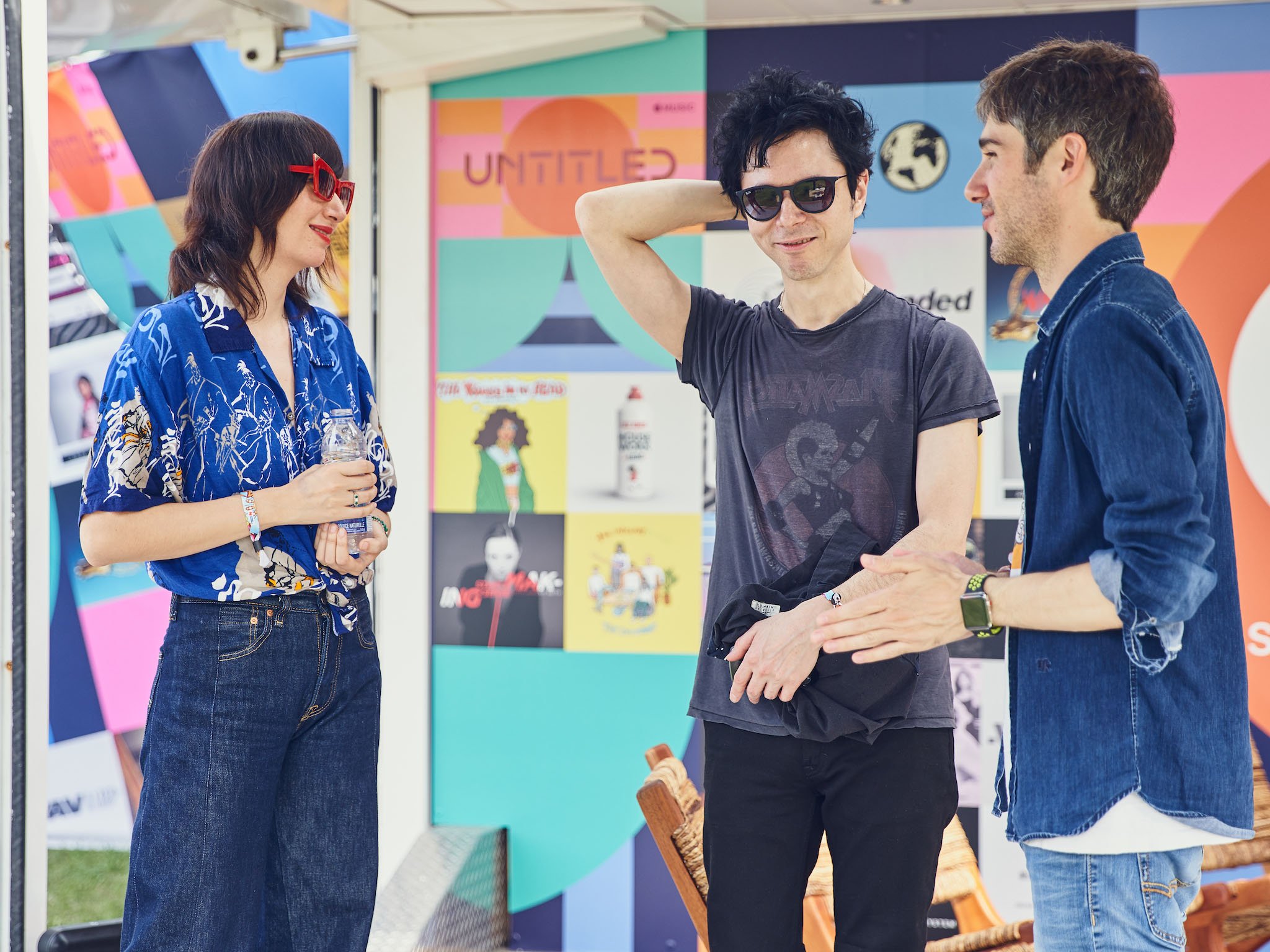

Rene: You're in Canada right now. Do you have any favorite Canadian acts, new acts you might be into?

Matt: Yeah. There's a lot of really good new stuff coming through. I think, weirdly, what I've been enjoying doing over the last couple of days...I'm a big supporter of labels like Royal Mountain and Arbutus, who I've followed for quite a few years.
Even when you go back to Grimes, I think she came out of the warehouse scene. That is interesting to me because we don't have that in London. It's done by the books a bit more. Every venue has to...There's really strict licensing, basically.
I think the cities where people get around that, it's interesting. To meet some of those guys...I hadn't actually met Alvvays before, even though I've been playing their music for like three, four years.
To have them stop by and talk about that and how they came through that scene and all the venues they used to play was really cool. In the UK, I know they're not a new band per se now, but they're really growing quite incredibly. They played the Roundhouse in London.
It was a big deal. It's like 3,500 people there. To be doing that on your second record, for a foreign band, it's really special. To connect with them here was very cool.
To meet with the Calpurnia guys was good as well. I hadn't quite got my head around what that was going to be like because, obviously, Finn is in "Stranger Things." He has this huge following already.
Actually, they're a really good band. They're really switched on to music as well. They're just music geeks, basically. I think that's why they got Cadien from Twin Peaks, another great band -- they come from Chicago -- to produce their record.
That guy, Finn, he could probably call up...I don't know. He probably could get a line to Rick Rubin or someone massive like that if he really wanted to, but it would be wrong. They realize that.
Meeting them and actually sitting down with them and just basically trying to find out "Are you for real? Are you really into this?" and then the answer being, "Yeah, we are. We really want to give it a go," was really nice.
The other band who I was really impressed with were Essaie Pas, who've been around for a while as well. In England, no one really knows them yet. They've done a few festivals. They did Primavera Festival last year.
They're the kind of band who would go down very, very well in certain left-field UK circles. I thought they had some really interesting stuff to say about Montreal and the scene here.
That ties back to Arbutus and the Grimes warehouse thing that I was talking about before. It's a really, really exciting time for Canadian music, actually.
Beginning Beats
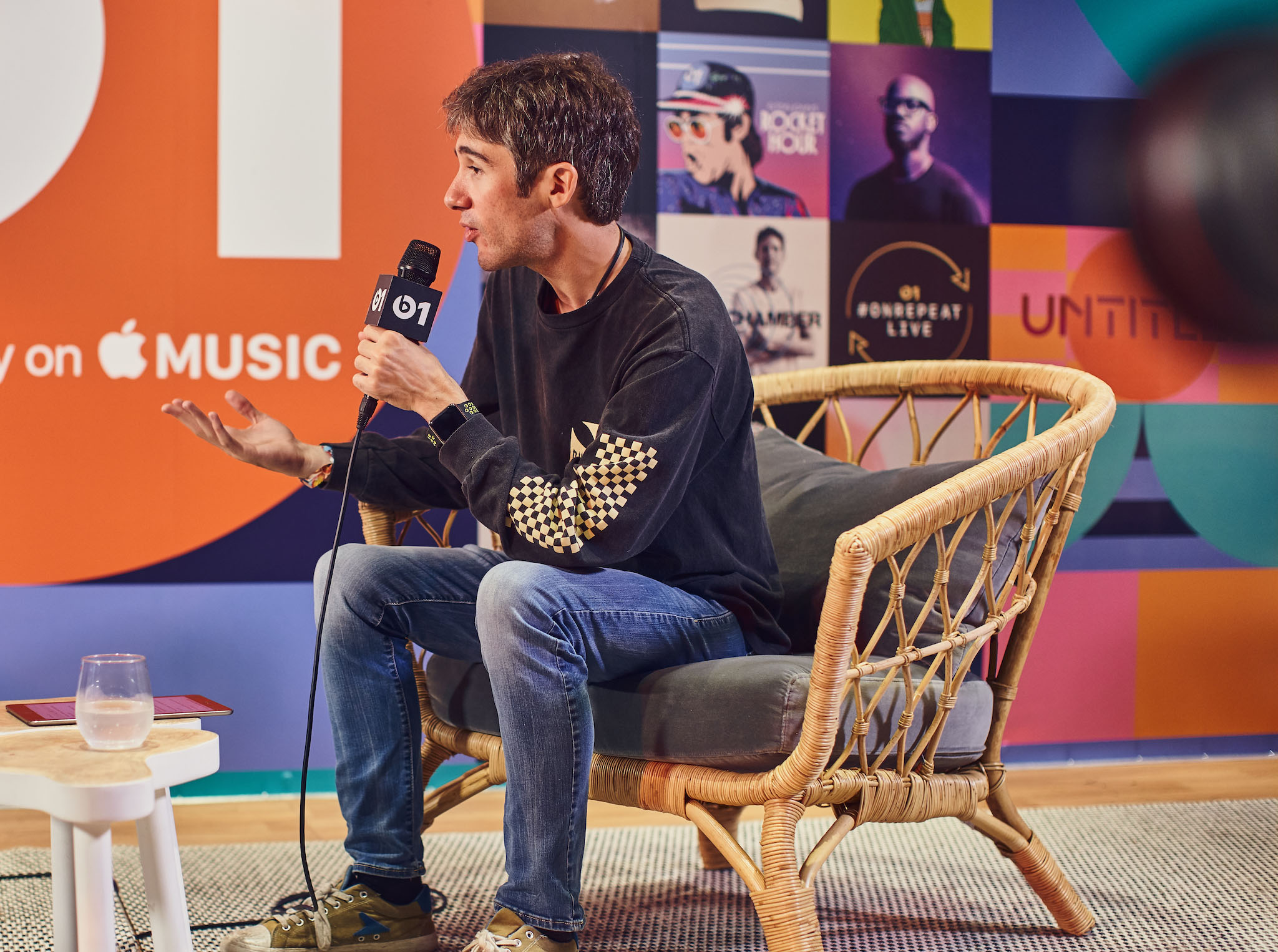

Rene: It's a great vibe. I have one last question for you. If someone is just getting into Beats 1 and Apple Music or they've been casual and they want to get more into it, do you have any tips on how they could do that?
Should they listen to a wider variety of show? Should they check out those curated playlists? What's the best way to get in-depth on Apple Music and Beats 1?

Matt: They should. The easiest thing to do with Beats 1 is literally just switch on the app and press play and listen to what's going on because it is 24 hours. There's so much variety.
In terms of playlisting, what you'll see, particularly with my show, is that we're linking playlists to the show, which is really exciting. There's a playlist called Untitled. It's the first time we've ever done this.
I have a track which I play at the top of my show. The first song I play, the most important track in the entire show, is called the Added Track. We call it that because I play it, I choose what it is, and then it gets added to the Untitled playlist.
Untitled is updated every single day. It's like my show in a playlist, if you will. There's great support from artists with it. They really love to be featured on it because it's such a popular way to have your music discovered.
Also, we tie it in really well on the show. We have those people in as guests on the days that the Added Track is the Added Track. The infrastructure's just about this world that we've created. It's about making it really accessible to people and making it fun as well.
I think in terms of other shows, I could reel off tens and tens and tens of shows that we do, which I love. My personal favorites...On a Sunday evening in the UK, Mike D's show, Echo Chamber, goes out.
It's just great, listening to him as I'm cooking my dinner or whatever. His interviews are so, so good. You get such a variety of people, whether they're from fashion or music or film or just his buddies or his kids. It's perfect for that sort of thing.
There's a show for every single mood. I think that's what we do. Frank Ocean's show, Blonded is just...You could listen to the show itself, or you could listen to the playlist. They both work.
I think the key thing that I would say to people is just explore because there is so much to get stuck into.
You can listen to Matt's show on Beats 1 and follow him on Twiiter @w1lko. Interviews running this week include:
- Chromeo
- KILLY
- Yeah Yeah Yeahs
- Milk & Bone
- Arctic Monkeys
- Calpurnia
- Cuco
- Khalid
- Billie Eilish
- Dizzy
- Essaie Pas
- DVSN
- ALVVAYS
- Lykke Li

Rene Ritchie is one of the most respected Apple analysts in the business, reaching a combined audience of over 40 million readers a month. His YouTube channel, Vector, has over 90 thousand subscribers and 14 million views and his podcasts, including Debug, have been downloaded over 20 million times. He also regularly co-hosts MacBreak Weekly for the TWiT network and co-hosted CES Live! and Talk Mobile. Based in Montreal, Rene is a former director of product marketing, web developer, and graphic designer. He's authored several books and appeared on numerous television and radio segments to discuss Apple and the technology industry. When not working, he likes to cook, grapple, and spend time with his friends and family.
